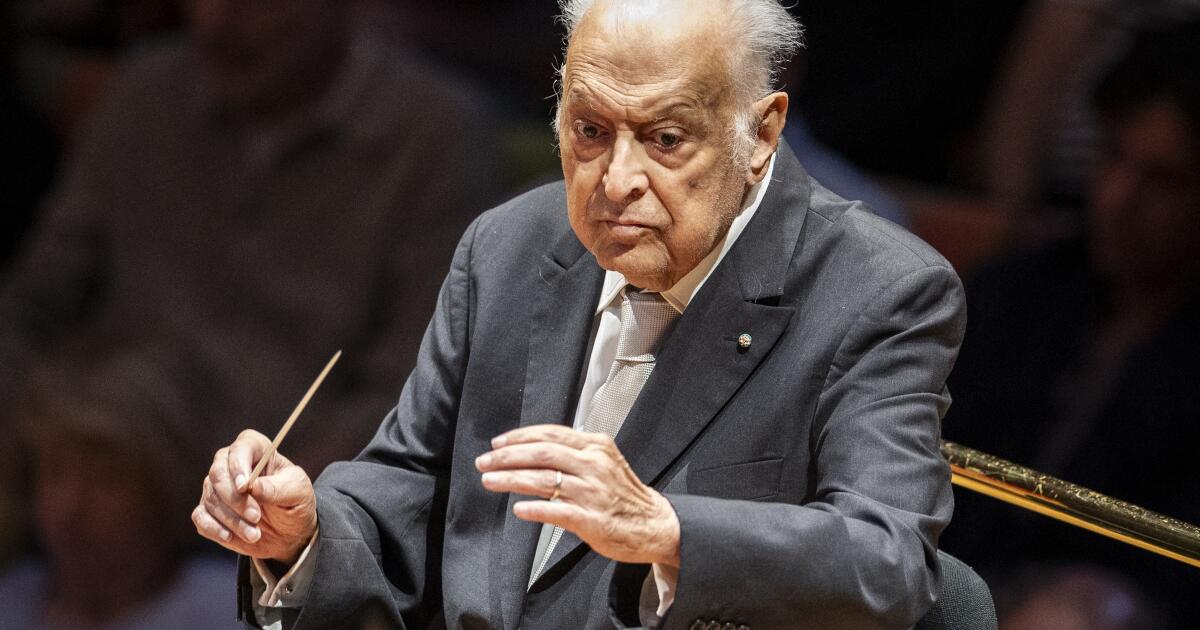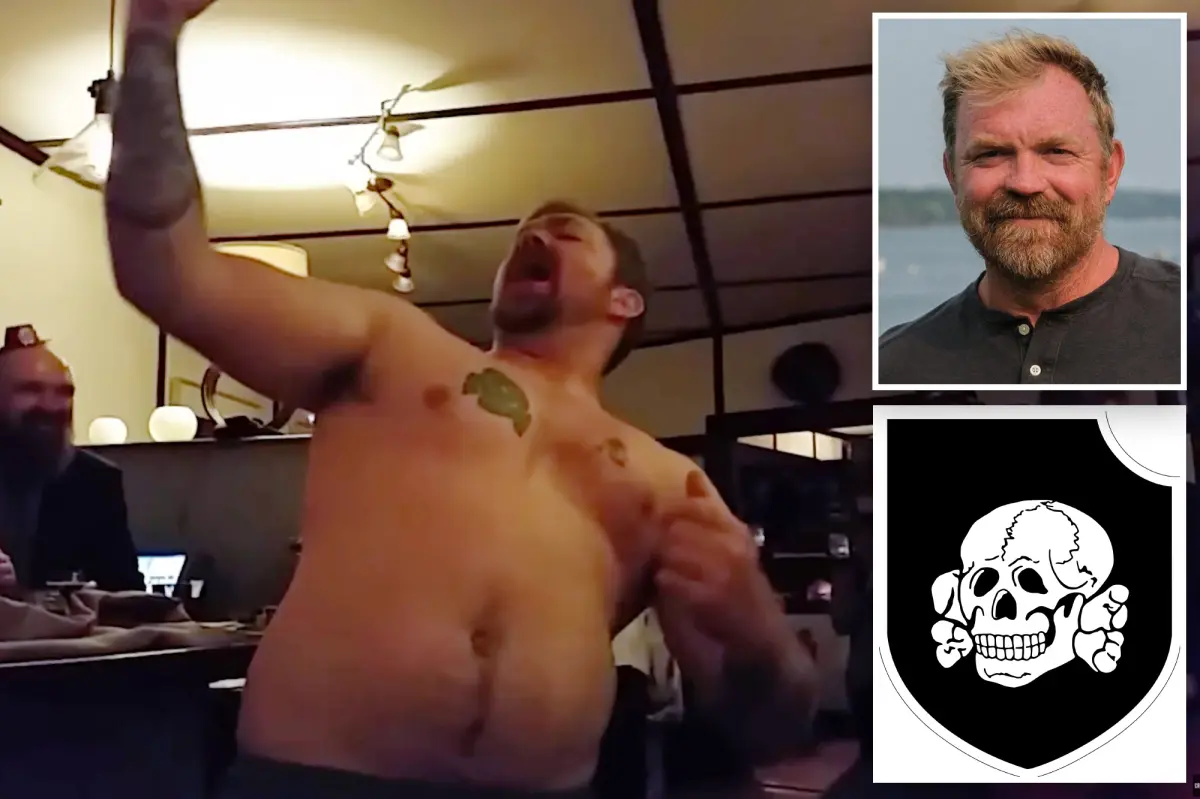Copyright Los Angeles Times

Zubin Mehta, the Los Angeles Philharmonic’s conductor emeritus and (without exaggeration) a living L.A. icon, returned last weekend to conduct Bruckner’s Eighth Symphony with his old band. The score requires a monster orchestra with a blockbuster brass section and an audience capable of patience and goodwill. The reward is epic symphonic exhilaration. For Bruckner, rising melodic scales, humongous fanfares with trumpets and horns and Wagner tubas galore and repeated patterns over and over by an unstoppable orchestra serve as injections of musical endorphins. Virile young conductors swoon over Bruckner at his biggest and baddest, as Mehta did when he recorded the Eighth with the L.A. Phil in 1974. Senior conductors seek meditative euphoria in vast, open Bruckernian sonic spaces and in his lush string harmonies, as an 89-year-old Mehta did Sunday afternoon at Walt Disney Concert Hall. Unable to travel because of health issues, Mehta canceled an appearance with the Boston Symphony at Tanglewood last summer and this fall appearances in Europe and Israel. But Mehta, who was born in Bombay (now Mumbai), India, has remained an L.A. resident since becoming the L.A. Phil’s youngest music director at age 26 (Gustavo Dudamel was 28 when he became music director in 2009). There he was Sunday, indomitable as ever, and given a tremendous ovation as he came on stage. When he last appeared with the orchestra in December 2024, he led two programs, the second being Schoenberg’s massive oratorio, “Gurrelieder,” which proved remarkable for his age and remarkable for his performance. He is, this year, frailer. Seated on a stool and seen from behind in Disney’s front-facing orchestra seats, Mehta’s gestures are too small to mostly be seen at all. But he led an 89-minute performance of Bruckner’s symphony from memory. The Eighth has very long been a Mehta specialty. He’s followed his L.A. Phil recording, an audio spectacular made in UCLA’s Royce Hall, with ones by the Israel Philharmonic, Concertgebouw and Berlin Philharmonic orchestras. The later recordings are from the last couple decades. They’re expectedly less showy and more mature, capable of competing with those by European masters. But the sound that Mehta created with the L.A. Phil and that was captured by the British Decca label has a magical, brash New World sparkle. I remember hearing Mehta conduct Bruckner’s Eighth in the acoustically challenging Dorothy Chandler Pavilion and with the Vienna Philharmonic in its storied Musikverein. In L.A. Bruckner had a fresh Hollywood, proto-John Williams and even a hint of Philip Glass vitality. In Vienna, it tasted like history, although a Viennese couple next to me in standing room complained of artificiality. Sunday, it was Mehta‘s indomitability on moving and stirring display. What long ago looked effortless for Mehta still didn’t look all that hard, given his memory, musical and cognitive. But communication with the orchestra, in its first concert back from an Asia tour, appeared more difficult. There wasn’t the tightness or brightness, for instance, that the players gave Stravinsky and Mahler in Tokyo. There wasn’t either quite the depth or the immediacy of that straight-to-the-gut Zubin L.A. sound. At times, the symphony sounded stuck. It was 10 minutes longer than in 1974, although Mehta’s later recordings got a bit slower over the years. Eighty-nine minutes might be long, but length can be deceiving. An exciting new recording of a different version of the symphony (Bruckner revisions are an art form in their own right) with the German Philharmonie Festiva, conducted by Gerd Schaller, clocks in at a snappy 69 minutes. At the other extreme, the magnificently effusive Sergiu Celibidache once recorded a 99-minute performance of the symphony with the Munich Philharmonic making Bruckner sound as infinite as the universe: There’s nothing like that. Time-wise and Bruckner-wise, Mehta embraced the middle way. Somewhere in the L.A. Phil DNA remains Mehta-ized hefty cellos and basses, heart-racing brass and upper-range wind fireworks. Mehta appeared to take that for granted. But his path is no longer so clear. He’s a wanderer in a Bruckner forest — sometimes lost and being lost, newly in awe. He’s a bather in a Bruckner ocean, the waves rolling over him. In the half-hour slow movement, harp and violins ascended melodic scales, allowing each step its magical, mystery share of exultation. Climaxes were no longer for Mehta meant to take your breath away but for taking a deep breath and letting Bruckner seep in to your pores. Once the most stirring of conductors (and for his some of his detractors, superficial), Mehta now simply empowers what he conducts. And if he can no longer travel, let the world come to him and the L.A. Phil. The vision, awe and love are best found at home with family.



